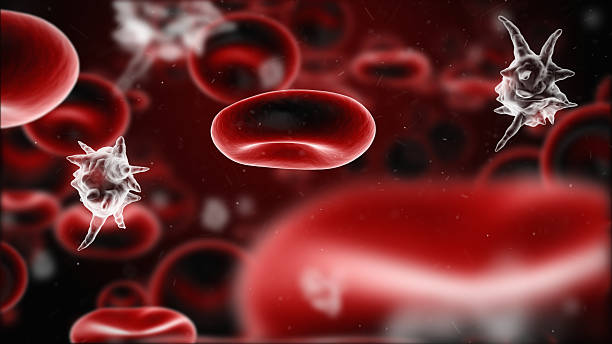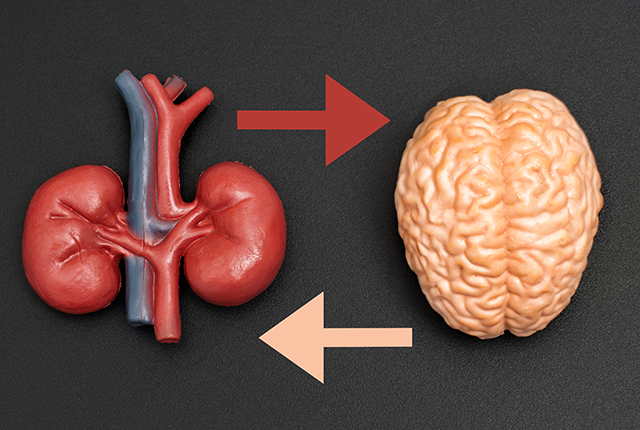
Creating novel approaches to improving sepsis care
The Sepsis Center of Research Excellence (SCORE-UW) is a collaborative medical research center working to create novel approaches to sepsis care through bioinformatics-based translational science.
Sepsis impact
Sepsis is a potentially life-threatening condition caused by the body's response to an infection, characterized by systemic endothelial activation and microvascular dysfunction.
Sepsis accounts for 1 in 5 deaths worldwide. A UW Medicine study
found that in 2017 there were 48.9 million global cases of sepsis and 11 million deaths, with the majority of cases occurring in low and middle-income countries.
To improve morbidity and mortality of sepsis, focus is placed on early identification and treatment to minimize the chances of multi-organ dysfunction, a feared complication of sepsis.
SCORE-UW
At UW, one research team is particularly interested in developing innovations for the diagnosis and treatment of sepsis through molecular profiling and bioinformatics.
The Sepsis Center of Research Excellence (SCORE-UW) is a collaborative medical research center with a mission to improve clinical outcomes in critically ill sepsis patients around the world through the discovery of novel diagnostic and therapeutics for sepsis using advanced molecular and bioinformatics-based translational science.
This work is made possible through collaborations with multiple schools and departments within the University of Washington (e.g., Medicine, Surgery, Radiology, Pediatrics, School of Public Health, Genome Sciences) a global network of academic medical centers (e.g., SARI-PREP, eMERGE, PETAL, ASSESS-AKI), industry (e.g., Roche Diagnostics and Microsoft AI for Health), and blood banks (e.g., Bloodworks NW), while complementing other sepsis organizations that are focused on advocacy, awareness, or direct patient care (e.g. Sepsis Alliance).
SCORE-UW is led by Director Dr. W. Conrad Liles, professor (Allergy and Infectious Diseases), and Co-Directors Drs. Pavan Bhatraju, assistant professor, and Mark M. Wurfel, professor (Pulmonary, Critical Care and Sleep Medicine).
Research
SCORE seeks to advance the care of sepsis patients through a better understanding of how the host response to microbial pathogens can be beneficial or harmful. This knowledge will be used to develop tests that can differentiate good from bad responses and use the results of these tests to guide novel therapies.
This approach will elucidate why the same pathogen causes a mild reaction in one person compared to a life-threatening response in another.
Prior efforts in sepsis-related development have focused on identifying and treating the infectious pathogen, a necessary but insufficient approach that has neglected the role of the host response. By focusing on the host response, SCORE will develop novel approaches to the care of sepsis patients that are more generalizable to all forms of sepsis and agnostic to the specific pathogens.
SCORE is using advanced computational approaches to develop tools that will use the breadth of data available through the Electronic Health Record (demographics, comorbidities, continuous physiologic measurements, clinical lab values, imaging findings, and novel biomarkers) to predict organ failure, mortality and identify subgroups of patients with sepsis that are more likely to benefit from certain therapeutic interventions.
Some specific goals for SCORE include:
- Development of decision support tools in the Electronic Medical Record to help clinicians identify sepsis patients most likely to progress to severe organ dysfunction who might benefit from being triaged to an Intensive Care Unit.
- Discovery and validation of novel biomarkers of host response with predictive/prognostic value in patients with sepsis and critical illness.
- Development of Precision Medicine tools to provide individualized care through prediction of response (“The right drug, in the right patient, at the right time.”)
- Development of Point-Of-Care diagnostics that provide biomarker measurements in real-time that can improve the precision of decision support tools
- Identify novel therapeutic targets and collaborate with biopharma to develop interventions.
These tools will advance efforts to achieve true, real-time precision medicine in sepsis care and improve outcomes.
Learn more
Our upcoming Medicine Grand Rounds by Bhatraju will focus on “Molecular Phenotyping of Sepsis-induced Acute Kidney Injury: Implications for Precision Medicine.”
He will discuss innovative strategies to identify patient sub-groups that uniquely respond to sepsis treatments and how to bring this work to the patient's bedside. SCORE-UW has catalyzed these scientific discoveries by supporting collaboration across the UW School of Medicine and collaboration with industry leaders, such as Roche Diagnostics and Microsoft AI for Health.







